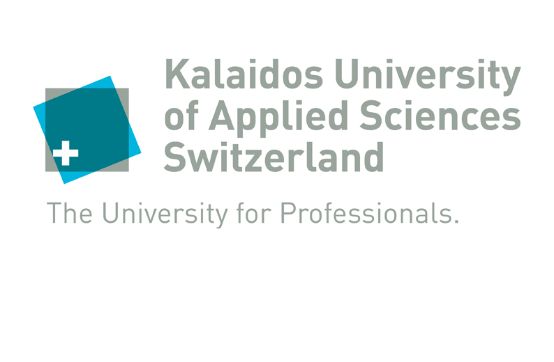Musicians in conversation
Frank-Thomas Mitschke in an interview with soprano Christiane Oelze and pianist Bernd Goetzke (part 2).

Frank-Thomas Mitschke - Christiane Oelze works with famous orchestras and conductors worldwide, e.g. with the Berlin Philharmonic and Sir Simon Rattle. She is a soloist at renowned festivals such as the BBC Proms, Glyndebourne, the Salzburg Festival, the Schleswig-Holstein Music Festival, the Lucerne Festival, Tanglewood and the Mostly Mozart Festival New York. Oelze has performed in recitals with her long-time piano partner Eric Schneider and with solo pianists such as Mitsuko Uchida (at Carnegie Hall) and Pierre-Laurent Aimard (at the Mozartwoche Salzburg and the Aldeburgh Festival, among others). She teaches singing at the Kalaidos University of Music.
Christiane Oelze, you have a wealth of experience as a musician! How did the performer Christiane Oelze inspire the teacher Christiane Oelze and vice versa?
My own singing came so easily to me for a long time that I wasn't able to empathize with students so well, perhaps because I had little patience. In a way, you teach yourself first, learn to improve yourself and work things out. At some point, I realized that I convey the same passion I have for singing in teaching.
Is there an "Oelze method"?
Through 34 years of singing in this profession, I have developed something like my own method. My hobbyhorse has probably always been my special sense of style, the instinct of how to shape which song, which aria.
What do you look for in young singers when they want to study with you?
I accept anyone who is seriously interested in singing and is prepared to come to lessons with a certain regularity. The more frequent the training, the better. I believe that everyone has a right to good singing lessons!
How do you deal with vocal crises?
The best way is to overcome them. Singing in this league is a high-performance sport, and as you can see from top athletes, everyone gets injured sometimes and has to take a break. Perhaps you could say, "Don't start at the beginning". Maintaining a healthy function of the vocal apparatus (i.e. the whole body...), a healthy balance of body, mind and soul, this involves a lot of things. And - there is also a life alongside, or rather with - singing.
Is there a focus in terms of the repertoire you want to develop with students?
Of course, I recommend suitable literature and use repertoire to address vocal and musical development. I try to work out a balanced plan with opera/oratorio/song with students who are preparing for their Bachelor's/Master's degree. There is so much repertoire; one lesson a week is hardly enough to cover it all. Students also have to study a lot of repertoire themselves.
How important is the (German) language in singing lessons?
The German language is essential for classical singing, unless you live in Italy and only sing Italian opera repertoire. Language in general: in contrast to the instruments, we have the vowel as the carrier of the sound, the sounding consonants as quasi chain links in between.
Do you have a kind of "pedagogical credo" that you pass on to your students?
Yes, I did: always serve the music, always sing with your heart, always listen to the music, pianist, orchestra, follow the flow of the composition in melody, language and rhythm, and it will open up to you.
Bernd Goetzke, you studied with Arturo Benedetti Michelangeli, among others. Do you also see yourself as a keeper of this piano tradition? What does this tradition consist of?
Interestingly, I have had to write and speak about this point several times recently.
Things that have always been sacred to me - since childhood, through my studies, especially with Michelangeli - can obviously simply be lost. I draw hope from the fact that there are still wonderful training centers where at least a minority of the often so talented and motivated piano adepts can be looked after. But outside these "nests" there is much to be concerned about.
That Michelangeli was an authority of the highest order here can hardly be denied. But he taught infinitely more than that: To "read" music correctly, even through the eyes of a composer or conductor, background knowledge of the compositions, a vivid imagination... This is more than "tradition", it should be fundamental pedagogical and artistic common knowledge, regardless of the fact that nothing can remain as it once was.
What is your artistic/educational credo? What do you pass on to your students? And what pragmatic advice do you give them on how they should earn a living - assuming that not all of them can make a living from their work as performing artists?
I meet my students at a stage when it is still essential to put all their eggs in one basket. At some point, they may end up with two or three cards: thoughts of teaching - for example in as good a position as possible in their home country (I have 90 % foreign students), the new and highly interesting field of self-management, chamber music, song accompaniment, a mixture of all of these... Incidentally, I consider it one of my tasks to advise against studying if necessary. This is much more common today than it was a few decades ago.
This includes, first and foremost, an education in independence, the teaching of values in which the ego is not necessarily at the center, a character-based, artistic toolkit with which to get through life.
There is nothing to be said against specialization, except that it should not start too early. The first thing to do is to put out feelers far enough in all directions. Then you'll see...








